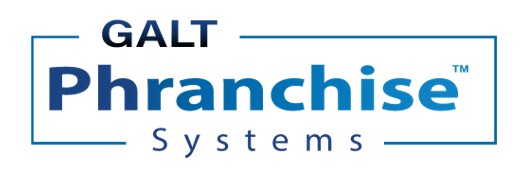The Exodus of Pharmacists: Understanding Why Pharmacists are Leaving the Pharmacy Field
By Jimmy Fanning, Galt Pharmaceuticals Manager of Pharmacy Solutions
In recent years, the once-stable landscape of pharmacy has undergone considerable change, with an increasing number of pharmacists choosing to leave the profession. This exodus, fueled by a multitude of factors, underscores a growing crisis within the field. From over-saturation in the workforce to grueling hours, dwindling compensation, burdensome metrics imposed by employers, and a stifling of clinical autonomy, pharmacists find themselves at a crossroads, grappling with the decision to stay or depart.
The pharmacy landscape has been marred by over-saturation, a result of a surge in pharmacy schools and an influx of graduates into the job market. The increase of pharmacy programs, coupled with a stagnant demand for pharmacists, has created a surplus of professionals vying for a limited number of positions. Consequently, job opportunities have become scarce, intensifying competition, and driving down wages. Graduates, burdened by staggering student debt, find themselves navigating a hostile job market with diminishing prospects, prompting many to reconsider their career path.
Moreover, the demanding nature of the profession takes a toll on pharmacists, who often contend with grueling hours and demanding workloads. The traditional 9-to-5 schedule is a relic of the past, as pharmacists frequently work extended shifts, including weekends and holidays, to meet the demands of their roles. This demanding schedule not only erodes work-life balance but also contributes to burnout and fatigue, further exacerbating attrition rates within the profession.
Compounding these challenges is the issue of decreased pay, which has become a bitter pill for pharmacists to swallow. Despite absorbing increasing responsibilities and shouldering the brunt of patient care, pharmacists have witnessed a steady erosion of their earning potential. Declining reimbursement rates from insurance companies, coupled with corporate cost-cutting measures, have led to stagnant wages and diminished earning prospects for pharmacists, rendering the profession less financially rewarding than in years past.
Furthermore, the imposition of metrics by employers has emerged as a significant source of frustration for pharmacists. From quotas on prescription volume to adherence metrics and customer satisfaction scores, pharmacists find themselves beholden to a myriad of performance indicators that often prioritize quantity over quality of care. This relentless focus on metrics not only detracts from the pharmacist-patient relationship but also undermines professional autonomy, causing many pharmacists to feel they have been relegated to mere dispensers of medications rather than trusted healthcare providers.
Perhaps most disheartening for pharmacists is the suppressing of their clinical skills, a consequence of the commodification of pharmacy practice. As pharmacy chains prioritize efficiency and profitability over patient care, pharmacists find themselves reduced to roles that emphasize dispensing medications at the expense of utilizing their clinical expertise. The erosion of clinical autonomy not only diminishes job satisfaction but also undermines the quality of care provided to patients, as pharmacists are increasingly constrained in their ability to leverage their skills to improve health outcomes.
In light of these challenges, it is unsurprising that an increasing number of community pharmacists are choosing to leave the profession. For many, the allure of a stable career in pharmacy has been tarnished by a reality marked by over-saturation, long hours, decreased pay, burdensome metrics, and a curbing of clinical autonomy. Faced with dwindling prospects and diminishing returns, many pharmacists find themselves struggling with the decision to persevere or pursue alternative career paths.
To address this exodus of pharmacists from the profession, stakeholders must confront the systemic issues that have precipitated this crisis. From reforming pharmacy education to aligning workforce supply with demand, bolstering compensation and benefits, fostering a culture of work-life balance, and empowering pharmacists to practice at the top of their license, concerted efforts are needed to revitalize the pharmacy profession and ensure its sustainability for future generations.
Galt Phranchise Systems offers a unique opportunity for pharmacists to utilize entrepreneurial skills while using knowledge gained in the pharmacy field, both clinical and operational. Galt Phranchisees have the exclusive rights to market Galt Pharmaceuticals products to local prescribers, with the opportunity to drive prescriptions toward local independent pharmacies or Galt’s national network of pharmacies. Phranchisees can help educate prescribers on products that address unmet clinical needs in the marketplace while contributing to the growth and development of independent pharmacies rather than large chains. Galt Phranchise systems allows pharmacists an exit from the pharmaceutical industry while allowing them to stay inside the greater healthcare industry.
To learn more about our one-of-a-kind franchise opportunity, email us at Franchise@galtps.com or visit www.Galtfranchise.com for more details.
Follow us on LinkedIn at Galt Phranchise Systems LLC and Galt Pharmaceuticals


